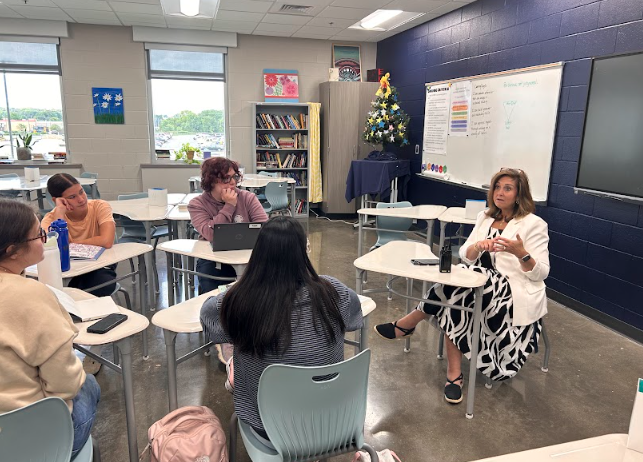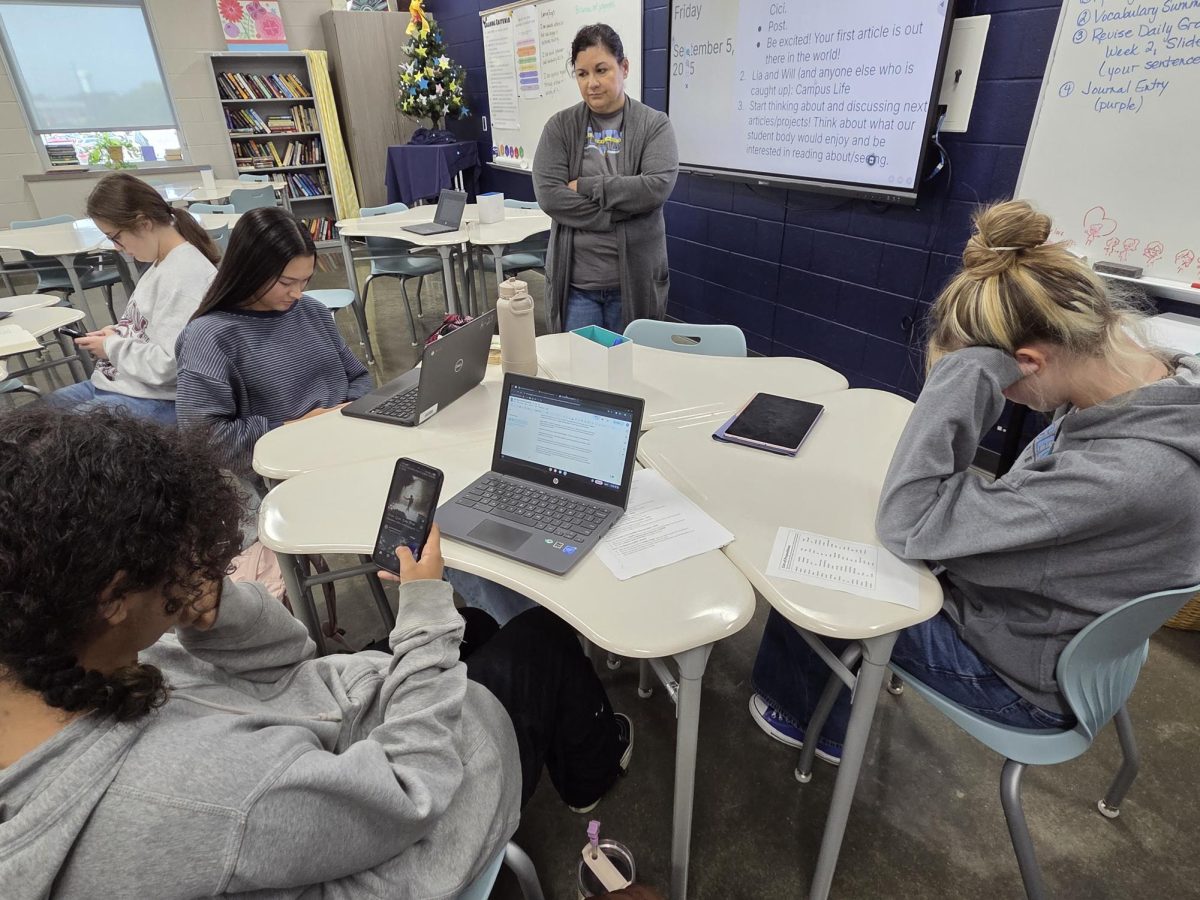Personality Tests: A Breakdown
A Guide to The Enneagram and Myers-Briggs Personality Tests with the Bruin Community’s Input

September 22, 2022
With the global population reaching upwards of 7 billion people, it is often difficult to separate ourselves from humanity as one individual. We are all aware that each of us is uniquely special, embodying distinctive characteristics and traits both physically and in regards to our personality. But sometimes self-discovery and understanding are challenging, especially without tools and guidance along the way.
To help solve this problem, philosopher George Gurdjieff created the enneagram, which became widely associated with nine specific personality types in the late 1960s. In a similar sense, American author Isabel Briggs Myers introduced her own 93-question personality test. Her assessment was originally used during World War II with the belief that a knowledge of personality preferences would help women entering the industrial workforce identify the war-time jobs that would be “most comfortable and effective.” Nowadays, both the Enneagram and Myers-Briggs personality tests are used as pre-employment assessments, therapeutic tools, or instruction for personal growth. They can be valuable methods of understanding one’s own behavior and tendencies and have continued to gain popularity within all cultures and beliefs.
The Enneagram Test
The Enneagram is a typology system that describes human personality as a number of interconnected personality types. Each of the nine personality types are characterized by a set of dominant behaviors, motivations, and fears. The goal of this system is to better understand your own Enneagram type so that you’ll be able to make the most of your strengths and address your weaknesses in order to achieve your full potential. It can also offer insight into others’ personality traits by learning about their Enneagram type.
Within the Enneagram system are nine personality types. These are categorized as:
Type 1: The Reformer
The Rational, Idealistic Type: Principled, Purposeful, Self-Controlled, and Perfectionistic
Type 2: The Helper
The Caring, Interpersonal Type: Demonstrative, Generous, People-Pleasing, and Possessive
Type 3: The Achiever
The Success-Oriented, Pragmatic Type: Adaptive, Excelling, Driven, and Image-Conscious
Type 4: The Individualist
The Sensitive, Withdrawn Type: Expressive, Dramatic, Self-Absorbed, and Temperamental
Type 5: The Investigator
The Intense, Cerebral Type: Perceptive, Innovative, Secretive, and Isolated
Type 6: The Loyalist
The Committed, Security-Oriented Type: Engaging, Responsible, Anxious, and Suspicious
Type 7: The Enthusiast
The Busy, Fun-Loving Type: Spontaneous, Versatile, Distractible, and Scattered
Type 8: The Challenger
The Powerful, Dominating Type: Self-Confident, Decisive, Willful, and Confrontational
Type 9: The Peacemaker
The Easygoing, Self-Effacing Type: Receptive, Reassuring, Agreeable, and Complacent
You are encouraged to take the Enneagram test if you want to learn what type you are and further detail on what your specific type entails. You can access the Enneagram test here.
Approximately 52% of Bruin survey respondents have taken the Enneagram test; 88% of those takers found their results to be relatively accurate. That being said, the beneficiality of the test was viewed in varying degrees.
“It was interesting, but I was an adult when I did so,” math teacher Cassandra Loskot explained. “I think it is more eye opening for students who are still trying to figure out who they are.”
“…I already knew who I was and I do not think getting it in writing was any better,” senior Ava Robinson added, in contrast.
A common theme amongst takers’ responses was that learning their Enneagram type and details helped them understand why they act or react the way they do. It offered a method of standard self-reflection. However, for those who did not agree with their results, it sparked confusion over their identity. This is completely understandable. If you have always perceived yourself as introverted and creative, but your Enneagram reflects a more extrovertive, logical thinker, what are you to believe?
It is important to realize that this test and the resulting qualities it recognizes within you are not set in stone. The data you receive does not define who you are, it is merely meant to be an available tool for your own journey of self-discovery.
The Myers-Briggs/16 Personalities Test
The ultimate goal is to encourage people to further explore and understand their own personality, including their likes, dislikes, strengths, weaknesses, possible career preferences, and relationships with others. It gives insight on how people make decisions, process information, and interact with others. First, individuals take a test that evaluates four dimensions of personality: where you focus your attention, the way you absorb information, how you make decisions, and how you deal with the world. Next, you’re given the results of the test in the form of a four-letter identifier.
Within each four dimensions of your personality, there are two opposing results. They are categorized as the following:
Where you focus your attention
(E) = Extraversion
(I) = Introversion
The way you absorb information
(S) = Sensing
(N) = Intuition
How you make decisions
(T) = Thinking
(F) = Feeling
How you deal with the world
(J) = Judging
(P) = Perceiving
You are encouraged to take the Myers-Briggs test if you want to learn what type you are and further detail on what your specific type entails. You can access the Myers-Briggs test here.
Approximately 47% of the Bruin survey respondents have taken the Enneagram test; 87% of those takers found their results to be relatively accurate. That being said, like the Enneagram test, the beneficiality of the Myers Briggs exam was viewed in varying degrees.
“It definitely gave me a lot of insight based on my answer choices and showed me better compatibility with things in my daily life. (ex: music, jobs, learning styles, relationships),” junior Syra Lundergan set forth.
In a similar sense, “It broke down key traits that I had and personality traits,” junior Abbie Wescott explained. “It also connected me to celebs who are like me.”
In parallel to quizzes strictly made for entertainment through companies like Buzzfeed or Quiz Expo, the Myers Briggs test can be a fun way to deep dive into the different aspects of who you are. It doesn’t have to be a life changing test, and does not have to be shared with anyone but yourself. For some, the result may make an astounding difference in their day-to-day perspective, while for others, they will carry on as they had before.
“…although I thought it was accurate, it didn’t really affect me in any way, negative or positive,” junior Isis Langford argued.
However you utilize the test and its resulting information is up to you and open to interpretation!
Enneagram vs. Myers-Briggs
Both of these personality focused tests are widely popular across the globe, but there is a reason there are two of them. Each quiz measures different things and follows a divergent format, some of which people prefer over the other. Both tests are completely free and available to take at any time, but may vary in length and effectiveness in one’s life.
The Central Hardin inhabitants who have taken both tests and were able to choose their favorite were equally split between the two. Some argued that one was more accurate to themselves, or was easier to take and furthermore, understand. These opinions are all valid for both sides of the spectrum as everyone prefers different things and seeks a certain type of experience from the test.
“I feel like the enneagram is easier, and the results give you an idea about your overall personality,” teacher Leslie Keiper stated. “I like the 16P test, but they are harder to interpret.”
Senior Landon Perry disagreed, saying “The questions were better,” in regards to the Myers-Briggs test.
Speaking in a different sense, “I took it [Myers-Briggs test] several years ago and it truly made me understand how and why I was the person I am,” teacher Jessica Hundley said.
In conclusion, the Bruin community has mixed feelings and thoughts on both the Enneagram and Myers-Briggs personality tests. If interested, The Central Times staff encourages you to take both and see if the results could benefit your personal introspection process. Sometimes, it is something as simple as a five-minute quiz that can make the biggest difference.
















